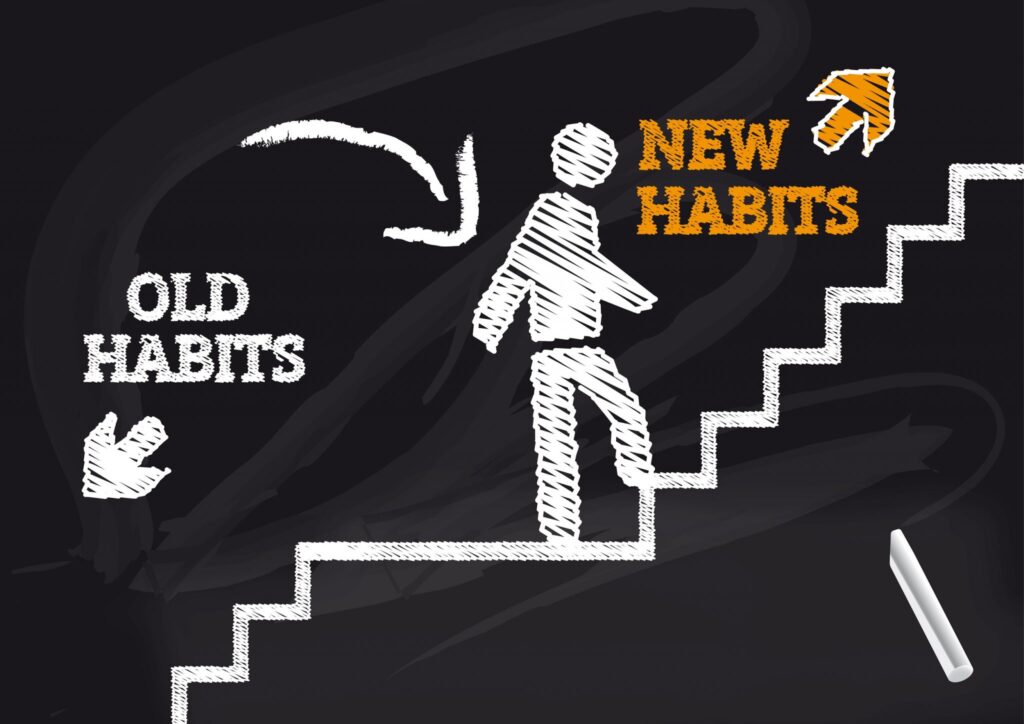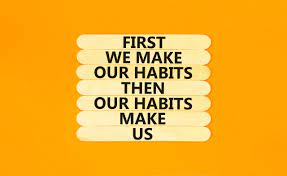30 Days To Better Habits A Simple Guide
Title: 30 Days to Better Habits: A Simple Step-by-Step Guide for Forming Habits That Stick
First of all, Developing new habits can be a life-changing process that promotes fulfillment, productivity, and personal development. Whether your goals are to become more attentive, eat a healthier diet, or begin exercising on a regular basis, creating habits that last takes dedication, perseverance, and planning. We’ll lay out a clear, step-by-step procedure in this extensive guide to assist you in starting a 30-day journey toward improved habits and giving you the ability to make long-lasting, beneficial changes in your life.
30 Days to Better Habits: A Simple Step-by-Step Guide
Day 1-5: Set Clear Goals and Intentions
- Reflect on Your Values: Spend some time determining your life’s priorities and guiding principles. Knowing what matters most to you will direct the establishment of new habits and guarantee that they are in line with your long-term objectives.
- Define Your Habits: Select a habit or two that you wish to work on building over the following thirty days. Start with modest, doable objectives that are consistent with your beliefs and desires.
- Set SMART Goals: Set SMART (specific, measurable, attainable, relevant, and time-bound) objectives for yourself. Rather of aiming for a general objective such as “exercise more,” try achieving “30 minutes of moderate exercise five days a week.”
- Create a Plan: Create a detailed action plan that details how you will incorporate your new habits into your everyday schedule. Determine prospective roadblocks and come up with solutions.
- Visualize Success: Visualize yourself effectively executing your new routines by using visualization techniques. You might become more motivated and reaffirm your commitment to change by visualizing successful results.
- Start Small: When forming a new habit, consistency is more important than intensity. Start with small, doable activities that you can quickly add into your everyday schedule, such a quick stroll or a five-minute meditation session.

Day 6-15: Establish a Routine and Build Consistency
- Create Triggers: To make your new habits easier to remember and carry out, link them to cues or triggers already present in your surroundings. Take mindfulness exercises, for instance, when you brush your teeth every morning.
- Track Your Progress: Use a calendar, habit tracker software, or notepad to record your daily routines. Keeping track of your development makes you more accountable and strengthens your resolve to be consistent.
- Stay Flexible: Be flexible and prepared to change course as necessary. Failures are a part of life, and they are unavoidable. Make an effort to learn from your mistakes and move on rather than obsessing over them.
- Celebrate Milestones: Celebrate and acknowledge your progress along the road. Giving yourself a reward for achieving goals will increase motivation and strengthen constructive behavior habits.
- Identify Triggers and Temptations: Acknowledge the circumstances, feelings, or triggers that could impede your progress or cause a relapse in your habit. Create coping mechanisms to control stress, urges, or unpleasant feelings without turning to stale routines.

Day 16-25: Overcome Challenges and Stay Motivated
- Practice Self-Compassion: Treat yourself with kindness and self-compassion, particularly when things are hard. Recognize that failures are a normal part of the process of forming new habits, and be patient and understanding with yourself.
- Find Support: Embrace a network of friends, relatives, or classmates who are like you in terms of aims and interests. Seek support, responsibility, and guidance from others who appreciate and comprehend your journey.
- Visualize Long-Term Benefits: Remind yourself of the long-term advantages of forming new routines, such better wellbeing, more productivity, or greater health. Imagine how your habits will improve your life in the coming days, weeks, months, and years.
- Stay Inspired: Look for motivation from TED lectures, books, podcasts, and role models who have the behaviors you want to develop. Rekindling your motivation and excitement for change can be achieved by learning from the experiences and triumphs of others.
- Review Your Progress: Reflect on your journey over the past 30 days and assess your progress towards achieving your goals. Celebrate your successes and identify areas for improvement or refinement. better habits
NOTE: You can Also Read: 10 Stress Signs Might Be Making You Sick.
Day 26-30: Consolidate Your Habits and Plan for the Future
- Consolidate Your Habits: As you incorporate your new habits into your everyday routine, they will eventually become effortless and automatic. Long-term habit formation and behavior modification require repetition and consistency.
- Set New Challenges: Strive to improve your progress by extending your current habits or establishing new ones. Continually pursue your own personal development by seizing new chances and challenges.
- Practice Gratitude: Develop an attitude of thankfulness and appreciation for the path you’ve taken and the advancements you’ve accomplished. Having gratitude strengthens your resolve to better yourself and promotes a positive mindset.
- Create a Maintenance Plan: Create a maintenance schedule to keep up your behaviors after the initial thirty days. Develop plans for overcoming possible setbacks, staying motivated, and gradually modifying your better habits.

In summary:
Starting a 30-day journey to develop new better habits is a highly effective method to start changing for the better and completely change your life. You may create better habits that last and help you move toward a better habits, healthier, and more rewarding future by being clear about your objectives, creating routines, conquering obstacles, and maintaining your motivation. Recall that change happens gradually, and your ability to succeed depends on your commitment to dedicate yourself to ongoing progress and to the process of self-improvement. You may construct a life that is in line with your values and objectives and achieve extraordinary outcomes if you have tenacity, determination, and the willingness to step outside of your comfort zone.




